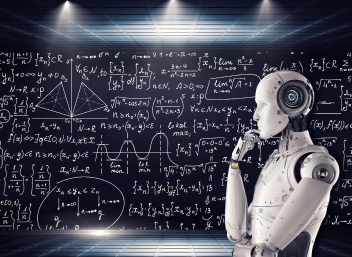What is AI? Why is it useful in daily life?

Definition of artificial intelligence
Artificial intelligence (AI) is the capability of a machine to perform tasks similar to those performed by humans. AI enables technical systems to perceive their environment, deal with what they perceive, solve problems and act in a certain way toward a specific goal. A computer receives data—prepared or gathered through its own sensors such as a camera—and processes it, responding accordingly.
Why is AI important?
Artificial intelligence (AI) has been around for more than 50 years, but advances in computing power, the availability of enormous quantities of data and new algorithms have led to major breakthroughs in recent years.
AI in everyday life
Below are some AI applications that you may not realise are AI-powered:
Online shopping and advertising
Artificial intelligence is used to provide personalised recommendations to people, based on their previous searches and purchases or other online behaviour. AI is hugely important in commerce: it can optimise products, plan inventory, and manage logistics for businesses.
Web search
Search engines learn from the vast amounts of data that their users provide through their queries, which are then used to produce relevant search results.
Digital personal assistants
Smartphones are increasingly relying on artificial intelligence to provide services that are as relevant and personalised as possible. Virtual assistants answering questions, providing recommendations and helping organise daily routines have become ubiquitous.
Machine translations
Language translation software, either based on written or spoken text, relies on artificial intelligence to provide and improve translations. For example, automated subtitling uses AI technology to provide subtitles while watching TV or movies.
Smart homes, cities and infrastructure
Smart thermostats learn from our behaviour and adapt to save energy, while smart city developers hope to regulate traffic in order to improve connectivity and reduce traffic jams.
Cars
While self-driving vehicles are not yet standard, cars already use various automated safety functions. For example, the EU has helped to fund VI-DAS—automated sensors that detect possible dangerous situations and accidents.
Navigation is largely AI-powered.
Cybersecurity
Artificial intelligence has the ability to recognize and combat cyberattacks, based on the continuous input of data, recognizing patterns and backtracking the attacks.
AI
Covid-19, an AI application used in the thermal imaging at airports and elsewhere, has also been used to help identify infection from CT scans. It can also be used to track the spread of diseases by providing data for researchers.
Fighting disinformation
The use of artificial intelligence in detecting fake news and disinformation can be aided by mining social media information, looking for words that are sensational or alarming, and identifying which online sources are deemed authoritative.
Want us to help grow your business?
Our mission is to help our clients achieve their goals by providing them with solutions that are tailored to their exact needs.

